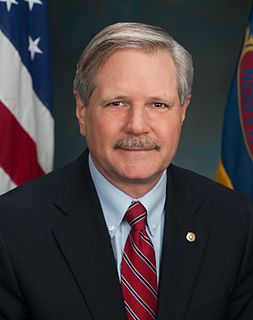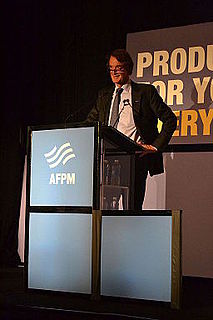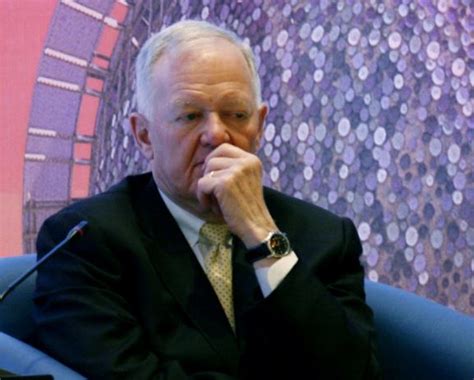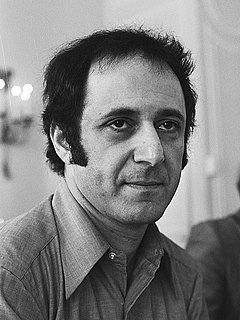A Quote by Mitt Romney
Let's take energy, for instance. I understand that in some industries, the input cost of energy is a major factor in whether an industry is going to locate in the United States or go elsewhere. So, when, at Bain Capital, we started a new steel company called Steel Dynamics in Indiana, the cost of energy was a very important factor to the success of that enterprise.
Related Quotes
U.S. industries from steel-making to plastics synthesis are among the world's most energy-efficient; American agriculture is highly productive, as are America's railroads. But for decades, Americans themselves have been living beyond their means, wasting energy in their houses and cars and amassing energy-intensive throwaway products on credit.
Not wasting energy. It is the least sexy, but the single most important and always the least expensive. You would be very interested in a report by the McKinsey consulting firm that concluded that 40 percent of everything that we have to do to mitigate our emissions are net economic winners. They are cost effective and the most cost effective is not wasting energy. That's actually going to be the largest part of this whole journey, I believe - using less energy with the same beneficial results.
The most straightforward path would be if we could bring the cost of solar electric and wind down by another factor of say, three, and then have some miraculous storage solution, so that not only over the 24-hour day but over long periods of time where the wind doesn't blow, you have reliable energy. That's a path. But energy storage is hard. That's not a guaranteed path.
The US in some ways has been the best. Who figured out shale gas? Although that wasn't a good thing [for CO2 levels], it was very innovative. It's led to low-cost energy. Who figured out nuclear power? Largely the United States. Once you get past the steam engine, which is mostly British, then the US has been at the center of most of the energy things that have happened.
If you really could take the CO2, when you burn hydrocarbons - coal, for example - if you could really capture the carbon and sequester it - they call it CCS - if the extra capital cost, energy cost, and storage costs over time didn't make it super expensive, then that's another path that you could go down.
It's very important for any artist, in any field, to take their own temperature and check out their own energy, and see what it is they ought to be doing to keep the energy up. Because if your energy is not up, you're going to come up with some really dreary piece of work that no one's going to enjoy.






























